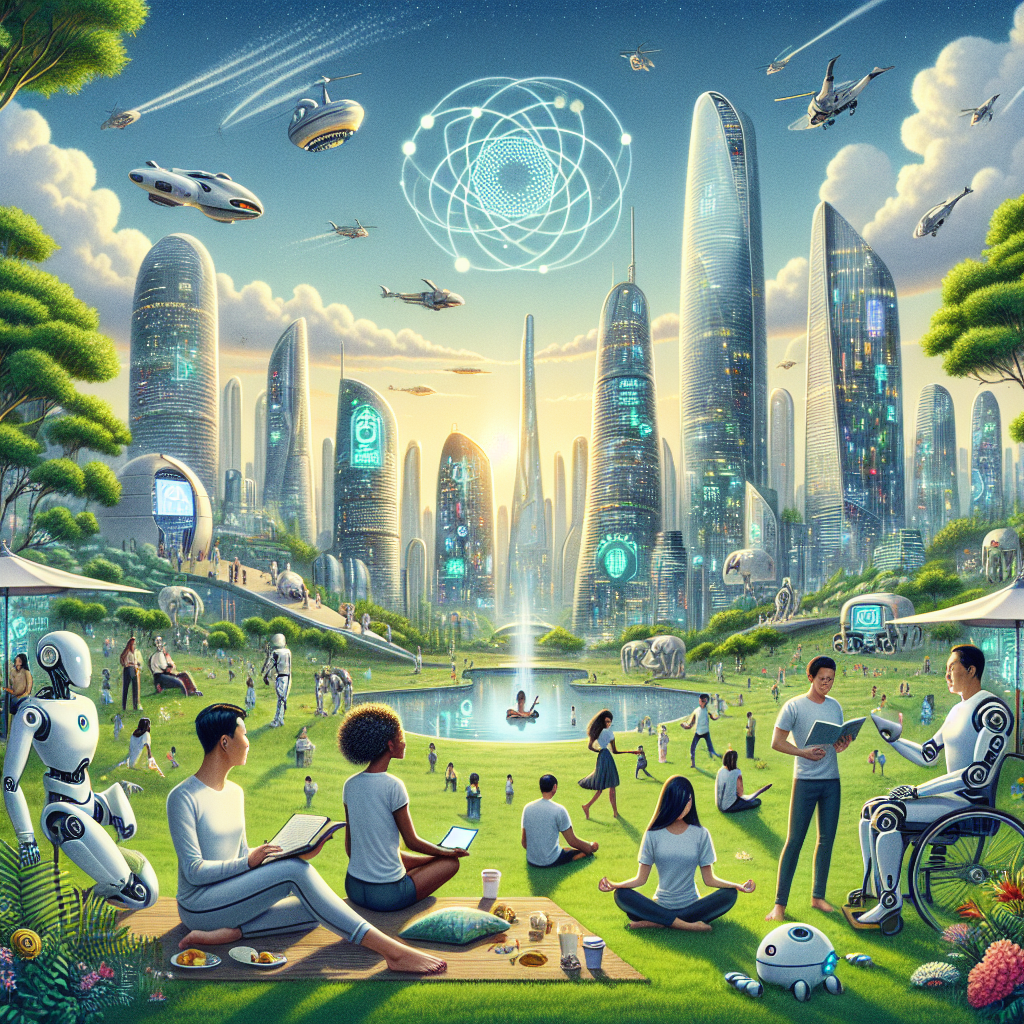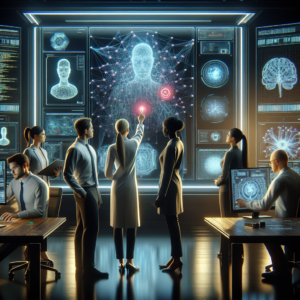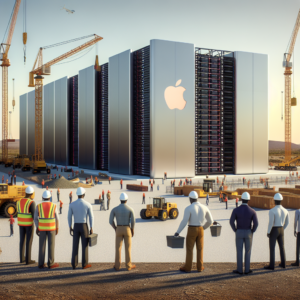AI Revolution: Wellness, Wealth, and a World Without Work
The advent of artificial intelligence (AI) is reshaping the very fabric of our lives and industries. As we enter a new era defined by intelligent machines and automated processes, society is presented with both exciting opportunities and daunting challenges. This blog post delves into how AI is revolutionizing our understanding of wellness, wealth, and the concept of work itself.
The Wellness Revolution
In recent years, there has been a growing awareness of the importance of mental and physical wellbeing. AI is playing a crucial role in this wellness revolution. With advanced algorithms and machine learning, AI-powered applications are becoming increasingly adept at tracking health metrics, personalized coaching, and even providing mental health support.
Wearable Technology
Wearable technology like fitness trackers and smartwatches has become more sophisticated, allowing users to monitor their health continuously. These devices utilize AI to analyze data and provide personalized recommendations based on the user’s habits. For instance, if a person shows signs of a declining mood, AI can suggest mindfulness exercises or even alert healthcare providers if necessary.
Telehealth and Mental Wellbeing
Telehealth services are another area where AI is making a significant impact. Virtual mental health platforms utilize chatbots and AI-driven systems to provide immediate support to individuals in need. These platforms can evaluate user reports, provide coping strategies, and even schedule appointments with human therapists when required. The accessibility of such services has made mental health support more attainable for various demographics.
Wealth and Economic Transformation
AI is not just transforming the health sector; it is also making waves in the economic landscape. The financial world is witnessing a seismic shift as AI takes over traditional roles in trading, investment, and risk assessment.
Automated Trading
In the finance sector, AI has enabled the rise of algorithmic trading—a practice that uses complex algorithms to analyze market data and execute trades at lightning speed. This has led to higher returns on investments but has also raised ethical questions regarding market manipulation. The efficiency gained from AI means that human traders may soon become obsolete in many areas of finance.
Enhancing Financial Services
AI is also improving customer service in the financial industry. Chatbots, equipped with natural language processing capabilities, can handle customer inquiries, provide financial advice, and even assist in investment strategies 24/7. This not only reduces costs for financial institutions but also improves the overall customer experience.
A World Without Traditional Work
As AI continues to automate tasks that were once reserved for human workers, we must confront the reality of a world where traditional work may become a relic of the past. This is sparking debates about the future of employment and the ethical implications of widespread automation.
Universal Basic Income
One proposed solution to the challenges posed by an automated economy is Universal Basic Income (UBI). UBI would provide citizens with a guaranteed income, allowing them to survive without the need for traditional employment. Proponents argue that this could lead to a more creative and healthier society, as individuals would have the freedom to pursue passions and projects without the pressure of financial survival.
The Gig Economy
As traditional jobs decline, the gig economy is on the rise. Many individuals are turning to freelance and contract work, providing services on demand. While this offers flexibility and new opportunities, it also raises concerns about job security and benefits that were once standard in full-time employment.
The Ethical Dilemmas of AI
With great power comes great responsibility, and the rise of AI brings numerous ethical dilemmas that society must grapple with. Issues such as privacy, surveillance, and algorithmic bias must be addressed to ensure that AI serves the greater good.
Data Privacy Concerns
As AI systems collect vast amounts of data to function effectively, concerns about personal privacy have escalated. Companies must prioritize data protection and transparency, ensuring that users are aware of how their information is being used. Failure to do so could lead to widespread distrust in AI technologies.
Algorithmic Bias
Another pressing issue is the potential for bias in AI algorithms. Many AI systems are trained on historical data, which may contain biases that can be perpetuated in the decision-making process. This can lead to unfair treatment in areas such as hiring, lending, and law enforcement. It is essential for developers to implement guidelines and checks to mitigate these biases.
Navigating the Future
The future of AI holds immense potential, but it also requires thoughtful navigation. As we embrace the numerous benefits that AI can offer, we must also be diligent in addressing the challenges it presents. Here are some strategies to ensure a positive outcome in the face of AI’s rapid advancement:
Education and Reskilling
The workforce must adapt to the changing landscape by prioritizing education and reskilling initiatives. By equipping individuals with the skills needed to thrive in an AI-driven economy, we can mitigate job displacement and empower workers to take on higher-level tasks that AI cannot perform.
Collaborative Human-AI Models
Rather than viewing AI as a replacement for human workers, we should strive for collaborative models that combine human intuition and creativity with AI efficiency. This hybrid approach can maximize productivity while preserving the human touch in various industries.
Policy Development
Governments and institutions must take an active role in developing policies that address the ethical implications of AI. By establishing guidelines for data privacy, algorithmic bias, and social security measures, we can create a framework that allows AI to flourish while ensuring societal welfare.
Conclusion
The AI revolution has already begun to reshape our world, impacting wellness, wealth, and the very essence of work. While the potential benefits are extraordinary, we must remain vigilant in addressing the challenges posed by this new technology. By prioritizing ethical considerations, education, and collaborative models, we can harness AI’s power to create a healthier, wealthier future for all. The question remains: how will we shape the future in this age of AI? The answer lies in our collective ability to adapt, innovate, and ensure that technology serves humanity, rather than the other way around.



